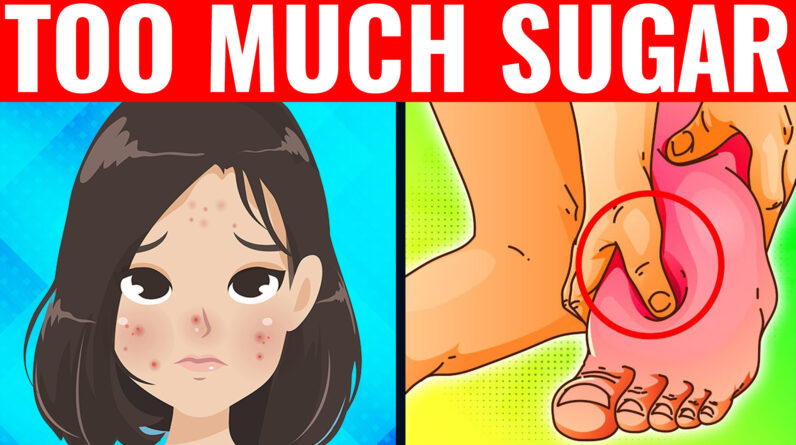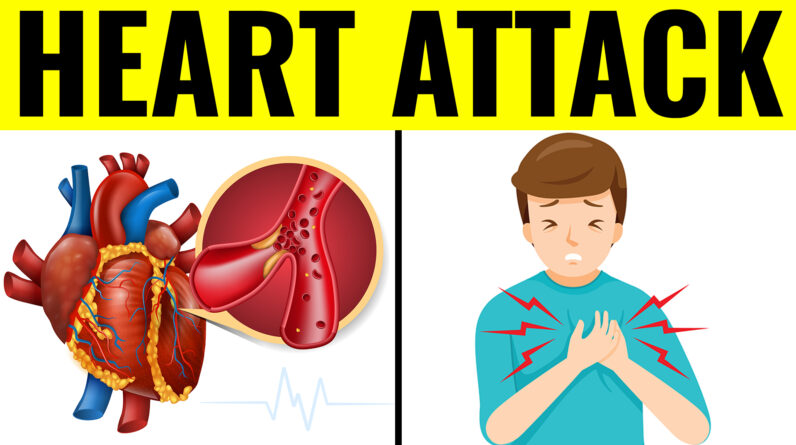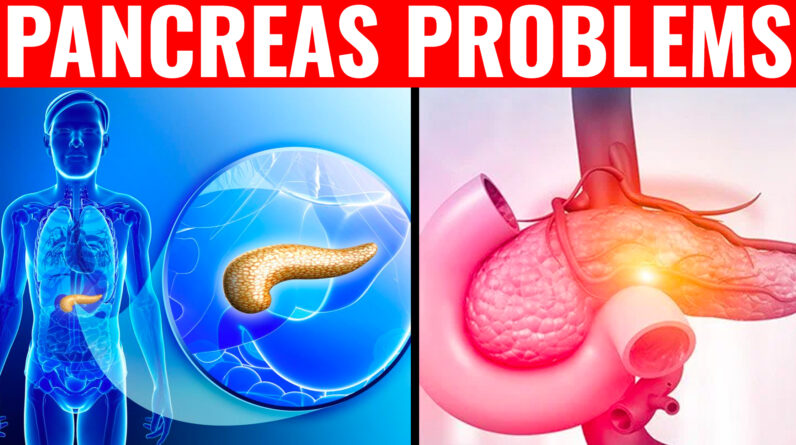
Almost everybody likes to have something sweet more often than once in a while. And really, there’s nothing wrong with the occasional bite or sip of something sweet. Plus, for some reason, sugar works well as comfort food, something that a lot of us have needed more of recently considering the circumstances.
However, when consuming added sugars becomes more frequent than occasional, we open ourselves to a lot of health complications that could affect any and every organ in the body.
As a result, sugar consumption is something that we need to watch. So, if you have been experiencing any of the following signs, you should consider reducing the amount of sugar in your diet.
1. Increased Hunger
Do you know why your satisfaction from consuming pastries and other foods that are high in sugar does not last? Well, it’s because your body breaks them down very quickly. Generally, carbs take a much quicker time to be broken down than protein, fiber, and healthy fats. But added sugars take an even longer time than complex carbs.
So, if your diet consists mainly of sugar, you will be hungry almost constantly. This is why it is important that you eat a balanced diet; make sure that in addition to complex carbs, your diet also consists of protein, fiber, and healthy fats, all of which digest slower than carbs and so will keep you full for longer.
And of course, for you to be able to eat a balanced diet, while also not overeating, you’ll have to significantly reduce the amount of carbs and sugar that you eat.
2. Constant Cravings
The more you consume sugar, the more you want to consume sugar. It’s completely normal if you crave ice cream or chocolate once in a while, but if you get the craving every day and every time, it is probably because you’ve been consuming too much sugar.
The reason this happens is that consuming sugar releases dopamine, kinda like what happens when you take addictive drugs. So, the more sugar you consume, the more dopamine that is released; and the more dopamine that is released, the more sugar you want to consume.
It is kinda scary when you understand that sugar can be as addictive as drugs, but it’s true. In fact, weaning yourself off sugar might come with some withdrawal symptoms, but you’ll be fine eventually.
3. Weight Gain
As we all know, sugar is broken down into glucose in the human body, and glucose is the body’s energy source. So, it is actually important that we consume some sugar.
However, the problem comes when we consume too much of it because the human body does not get rid of excess glucose. Instead, it stores the excess in the liver, muscles, and probably it’s favorite place, around the middle as fat.
Now, this was great way back in the day when our ancestors were food gatherers and it was difficult to find food. In those cases when they couldn’t find any food, their bodies could still run off the stored glucose.
However, it doesn’t work in the present day when there are a lot of people that eat at least once a day. As a result, we gain weight when we consume excess sugar.
4. Low Energy
It is quite interesting that food that is supposed to be an energy source would cause low energy, don’t you think? Well, the reason this happens is because sugar digests quickly.
So, when you consume something sugary, insulin is released by the pancreas which then transfers glucose to the cells, resulting in a rush of energy. However, when that supply is used up, your energy level takes a plunge and your body craves some more sugar.
The key to keeping your energy throughout the day is to maintain balanced blood sugar levels, and you can’t achieve this with sweets. So, if you find that you are unnecessarily tired all the time, you might want to check how much sugar you are consuming.
5. Bloating
Our bodies are home to bacteria, both the good and the bad. The good guys typically like to feed on healthy stuff like vegetables and are believed to not produce any gas.
The bad guys, on the other hand, love sugar and are believed to produce gasses when they ferment undigested food in the colon. This overabundance of gas in the colon is what causes bloating, flatulence, and, sometimes, stomach ache.
6. Irritability
When we feel moody and on edge, we usually blame it on stress, and that could very well be the reason. But if you’ve had the time to rest and still feel inexplicably moody, you might want to look at the amount of sugar you are consuming.
Now, this one ties back to the issue of unstable energy levels. Consuming high-sugar meals spikes your energy level and then drops it a short while later, making you not only really fatigued but also easily annoyed.
7. High Blood Pressure
When we talk about diet and blood pressure, most of us always look to a high sodium consumption. And while eating a high sodium diet puts one at risk for hypertension, that’s not the only culprit in our diets.
Research has shown that consuming beverages that are sugar-sweetened has a significant connection with high blood pressure and puts one at risk for hypertension. Researchers are saying that this could be because high levels of glucose can damage the lining of the blood vessels, which would make it easier for cholesterol to stick to the walls of the blood vessels.
That said, current research has only been able to establish relationships and not causation. But it doesn’t hurt to lay off the sweets for the sake of the heart.
8. Premature Aging
Excessive sugar consumption does not only affect your insides, it also affects the surface. This happens because a high sugar diet causes long-term damage to skin proteins, collagen and elastin.
Because your skin needs all of these to remain healthy and supple, damage to them will cause your skin to age prematurely.
A high sugar diet could also cause eczema and that is because bad gut bacteria consume too much sugar, causing inflammation, which is typically seen in eczema.
9. Insomnia
You know how consuming sugar leads to an energy spike? Well, if you consume sugar right before bed, all that energy will make it difficult for you to fall asleep.
But the problem is not only with consuming sugar right before you go to bed, it is consuming a high sugar diet consistently.
A high-sugar diet will mess with your sleep cycle and sleep quality, making it not only difficult for you to fall asleep, but also difficult for you to have a good night’s rest.
10. Cavities
There is absolutely no talking about the signs of high sugar consumption without mentioning cavities. The bacteria in our mouths feed and thrive on the simple sugars that can be found in sweets and sweetened beverages.
So, consuming a high-sugar diet is basically an invitation for these bacteria to come out and play, and when they play, they feast on the teeth too.
Truth be told, consuming sugar at all would cause this. But if you swish water around in your mouth after eating something sweet, you might be able to prevent cavities.
Don’t brush your teeth immediately after, though, because that would erode your enamel overtime. The reason has something to do with balancing the pH of your mouth, but that’s a different article.
Anyway, if at your last dentist visit you found out that you have a cavity or two, you should know that you are eating too much sugar.
11. Brain Fog
Impaired memory, lack of focus and concentration, and mental inclarity have all been shown to have a connection with consuming too much sugar.
This is because too much sugar would raise your blood glucose levels, obviously, and while our brains use glucose as fuel, too much of that glucose would have an inflammatory effect on the brain, impairing some of the brain’s functions.
So, if you find it difficult to concentrate or remember, it might be because your sugar consumption is too high. However, it is better that you have that checked out by a medical professional.
12. Issues with Digestion
Diarrhea, constipation, cramping, and stomach ache are all also connected to a high sugar consumption. This is because too much sugar irritates the gut, and so can lead to a number of gut related issues like the ones already mentioned.
Additionally, for people with underlying health issues like Crohn’s disease and Irritable Bowel Syndrome, too much sugar could make the symptoms worse.
Most, if not all, of the signs mentioned here could be symptomatic of something else. So, if you are experiencing a lot of these signs or you don’t think your sugar consumption is bad, you should seek medical attention, just to be sure.
However, if you consume a high sugar diet, consider reducing the amount you consume. But it isn’t just about removing artificial sugars from your diet, you should replace them with healthier alternatives, that’s the only way that the change can stick.







